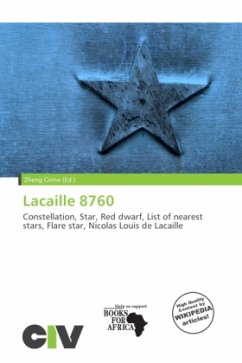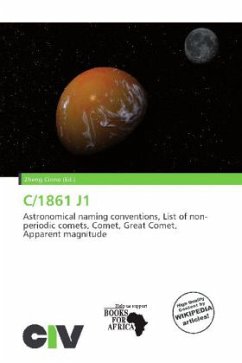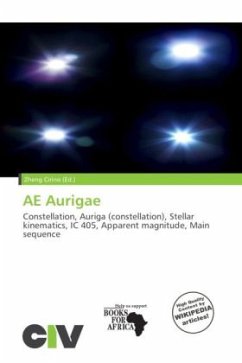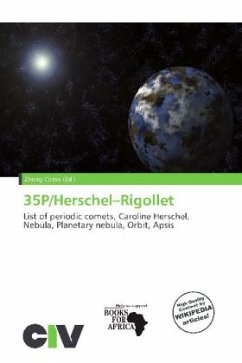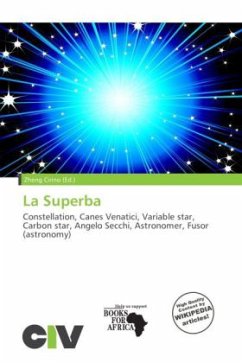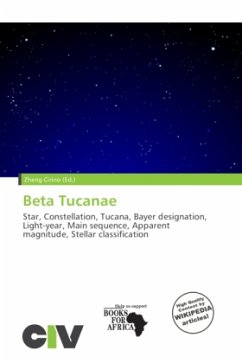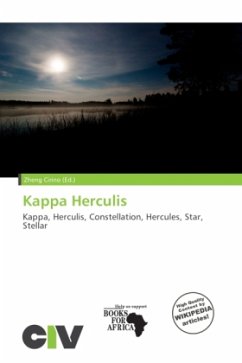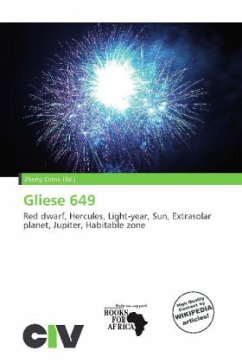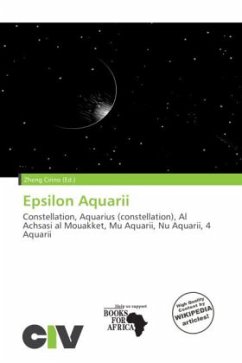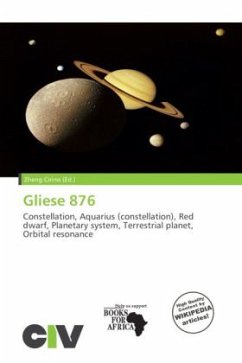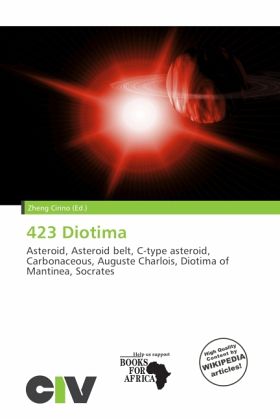
423 Diotima
Asteroid, Asteroid belt, C-type asteroid, Carbonaceous, Auguste Charlois, Diotima of Mantinea, Socrates
Herausgegeben: Cirino, Zheng
Versandkostenfrei!
Versandfertig in 6-10 Tagen
19,99 €
inkl. MwSt.

PAYBACK Punkte
10 °P sammeln!
Please note that the content of this book primarily consists of articles available from Wikipedia or other free sources online. 423 Diotima is a one of the largest main-belt asteroids. It is classified as a C-type asteroid and is probably composed of primitive carbonaceous material. It was discovered by Auguste Charlois on December 7, 1896, in Nice. It is named for a priestess who was one of Socrates's teachers. It is one of seven of Charlois's discoveries that was expressly named by the Astromomisches Rechen-Institut. In the late 1990s, a network of astronomers worldwide gathered lightcurve d...
Please note that the content of this book primarily consists of articles available from Wikipedia or other free sources online. 423 Diotima is a one of the largest main-belt asteroids. It is classified as a C-type asteroid and is probably composed of primitive carbonaceous material. It was discovered by Auguste Charlois on December 7, 1896, in Nice. It is named for a priestess who was one of Socrates's teachers. It is one of seven of Charlois's discoveries that was expressly named by the Astromomisches Rechen-Institut. In the late 1990s, a network of astronomers worldwide gathered lightcurve data that was ultimately used to derive the spin states and shape models of 10 new asteroids, including 423 Diotima.



